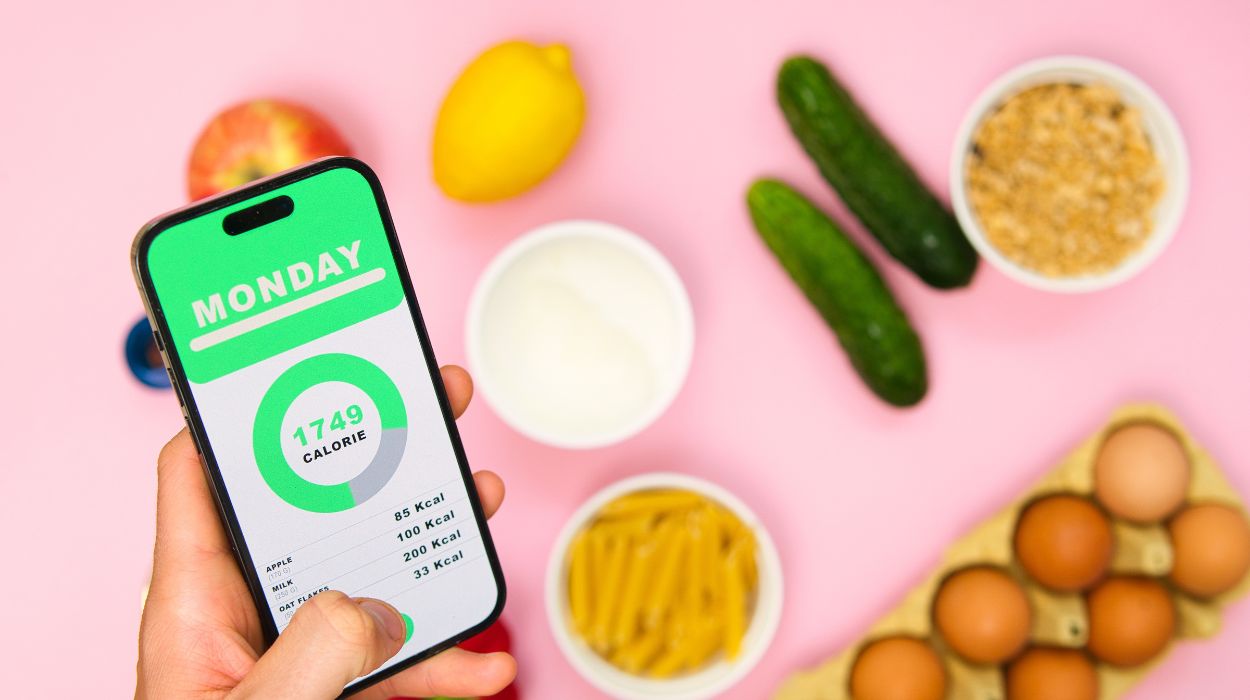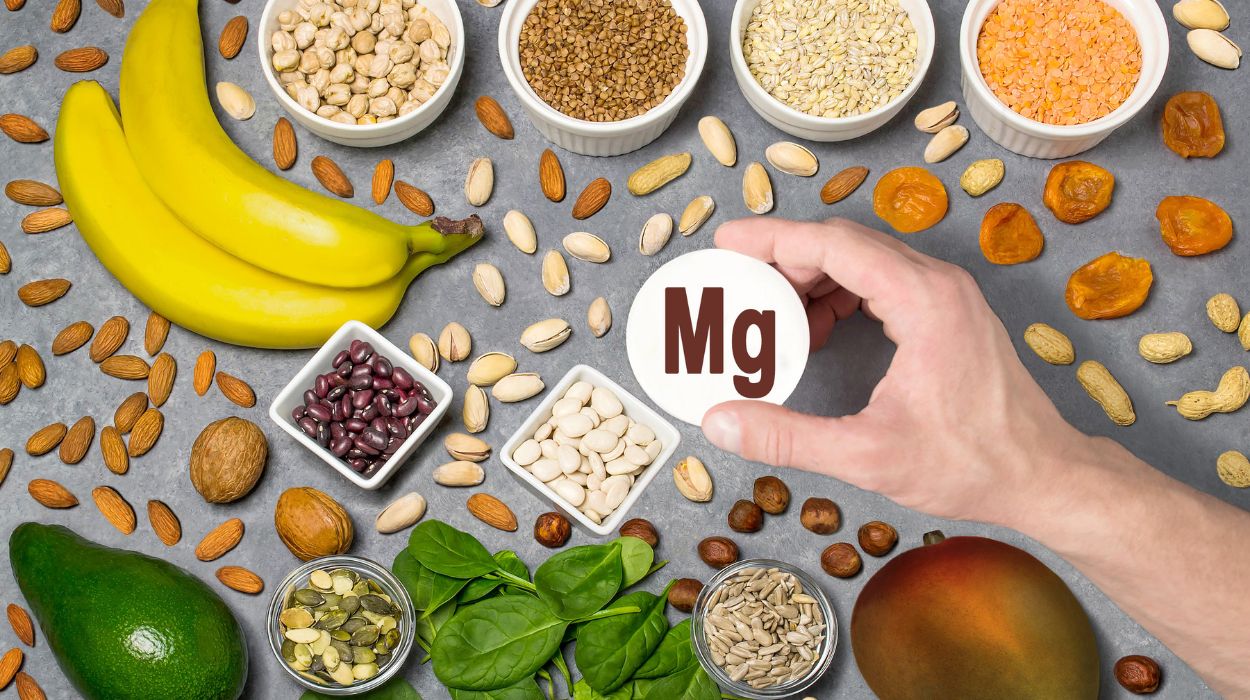 Expert's opinion
Expert's opinion
Expert's opinion
The article is a subjective view on this topic written by writers specializing in medical writing.
It may reflect on a personal journey surrounding struggles with an illness or medical condition, involve product comparisons, diet considerations, or other health-related opinions.
Although the view is entirely that of the writer, it is based on academic experiences and scientific research they have conducted; it is fact-checked by a team of degreed medical experts, and validated by sources attached to the article.
The numbers in parenthesis (1,2,3) will take you to clickable links to related scientific papers.
How Many Calories On Keto Diet Male? 2024 Tips For Calorie Intake

Following a ketogenic diet journey can be a game-changer for many individuals, especially men who want to lose weight, build muscle, or improve their overall health.
The ketogenic diet is based on remaining in ketosis. When our body is in a state of ketosis, our bodies burn fat for energy instead of food. This often leads to significant weight loss.
One crucial aspect often overlooked is understanding the correct calories to eat daily. You might wonder, how many calories on a keto diet male can consume? Keep in mind that this can vary based on age, height, and activity level.
Are you still not losing weight in a calorie deficit? It might be time to look into macronutrients!
This article will dive deep into how many calories men should eat on a ketogenic diet, the factors influencing this number, and how to optimize your keto journey for the best results.
How Many Calories On Keto Diet Male?
According to the Dietary Guidelines for Americans,[1] men should consume between 2000-3000 calories a day.
Are you wondering how many calories on a keto diet a male should consume? This will depend on factors such as your height, activity level, and age.
Also, how many calories a day you should have will be impacted by your goals. Are you aiming for weight loss, weight gain, or maintaining weight? We will explore these specific calorie needs in more detail.
Calories: What Are They?

Technically, a calorie[2] is a measure of energy.
Calories are used to express the nutritional value of foods and measure the amount of energy in the foods and drinks we consume. Higher calories mean it provides more energy for our bodies.
If we eat too many calories, we are in a calorie surplus. In a calorie surplus, our body will store the extra calories as fat, and we will gain weight.
On the other hand, if we eat fewer calories than our body needs, we are in a calorie deficit. Our body burns excess fat in a calorie deficit to obtain the required energy. Calorie deficits are essential for losing weight and fat burning, even on the ketogenic diet.
Calories And Your Metabolism: An Overview
Your metabolism is the chemical process that occurs as your body breaks down food into energy. Calories from food provide energy for the body to use for essential functions.
The total amount of energy or calories your body uses a day can be broken down into four main components:
- Basal Metabolic Rate (BMR) = the energy needed to stay alive. BMR[3] is the energy that would be spent if you were completely sedentary all day, laying in bed and sleeping. This makes up approximately 60% of your total calorie requirements.
- Exercise Associated Thermogenesis (EAT) = the energy spent on actual exercise. This includes things like yoga, walking, running – anything you would consider exercising.
- Non-Exercise Associated Thermogenesis (NEAT) = NEAT,[4] the energy spent on activities of daily living. This includes housework, yard work, your job type (sedentary desk job vs. active construction worker), and how much you might fidget throughout the day.
- Thermic Effect of Feeding (TEF) = It takes energy[5] to break down the food we eat. Approximately 15% of the energy spent daily comes from digesting food. The TEF will vary based on macronutrients and fiber intake. Fats are usually under 5%, carbohydrates can range between 5-15%, and protein is the highest up to 25%.
When we add these four measures together, you will have the following:
- Total Daily Energy Expenditure (TDEE) = This is the total calories needed daily to maintain your current weight. Many people refer to this as maintenance calories. It is calculated by adding the BMR, EAT, NEAT, and TEF together.
TDEE is unique to each person, and it can also vary from day to day. The fluctuations in your TDEE make it hard to give a precise number of calories to eat a day while on the ketogenic diet.
The good news is you don’t have to have a precise measurement of your calorie needs every day to lose weight. The best way to stay on track is to calculate an estimate or range of calories that factor in your body type, activity level, and specific goals.
Estimating The Requirements Of Your Body
Certain factors need to be considered when determining the correct daily calorie intake for men on a keto diet. These factors include:
- Age
- Weight
- Height
- Activity level
- Overall health
Considering these factors will help you determine your optimal daily calorie intake for maintaining weight, losing weight, or gaining muscle mass on a ketogenic diet.
It is easiest to use a tool like a keto calculator to estimate your body’s unique daily calorie requirements. It will take all of the previously discussed factors into account.
You can also calculate calorie requirements manually using your TDEE. There are many TDEE calculators available to use on the internet.
Recalculate The Calories Based On Goals
Once you have determined your TDEE, you can adjust your calories a day based on your specific goals, such as weight loss, muscle gain, or maintenance.
To safely adjust your TDEE, you should change your calories a day based on a percentage. This way, you are accounting for your body size and activity levels.
Eating too much or too little can lead to health problems such as nutrient deficiencies.
Weight Loss
You must create a caloric deficit to lose weight on a keto diet. This can be achieved by having fewer calories, increasing physical activity, or combining both. Avoid starchy vegetables, processed foods, fried foods, and high-fat foods to reduce calorie intake.
To lose weight, you should reduce your calorie intake by 10-15% below your TDEE. For example, if your TDEE is 2,500 calories, aim to consume between 1,875 and 2,125 calories per day.
Muscle Gain
Keto dieters who want to gain muscle must be in a caloric surplus. This can be achieved by increasing your calorie intake while exercising to stimulate muscle growth.
The general recommendation for muscle gain is to increase your calorie intake by 10-15% above your TDEE. For example, if your TDEE is 2,500 calories, aim to consume between 2,750 and 2,875 calories per day.
Maintenance
If you have been on the keto diet for some time now and want to maintain your current weight, you should aim to have the same daily calories as your TDEE. Ketogenic diets rich in low-carb vegetables, healthy fats such as olive oil, and high-protein foods will support maintenance.
For example, a moderately active male with a TDEE of 2,500 would maintain his weight by consuming 2,500 calories per day.
Calories & Macronutrients: Macros Impact On Body Composition

Calorie consumption is a significant component of any low-carb diet, but macronutrient tracking is also essential for success on the ketogenic diet. Macronutrients, or macros, are the total fats, proteins, and carbohydrates we ingest daily. The macronutrient ratios on the ketogenic diet should roughly be:
- Fat = 70%
- Protein = 25%
- Carbohydrates = 5%
Macronutrients[6] also play a crucial role in our body composition. The amount of each macro we eat shifts if we lose or gain muscle, body fat percentage, or water on the ketogenic diet. Below we will further explore the role each macro plays in body composition.
- Fat intake: Fat intake is crucial for maintaining hormonal regulation and energy levels. If we are in a calorie deficit, our fat mass can be decreased. If we consume excess calories, our body can store this as fat. Healthy fats for keto include foods like coconut oil and avocado.
- Protein intake: Protein is closely linked to muscle mass. It is essential to eat enough protein because when we are lacking, our body can break down muscle to free up the protein needed for energy. When you eat enough protein and are in a calorie surplus, the body can store this protein as lean body mass. High-protein foods for the ketogenic diet include fresh meats, nuts, and even protein bars.
- Carbohydrate intake – Carb intake is related to water retention. Typically on the ketogenic diet, you consume less than 5% of total carbs. Early weight loss on the ketogenic diet may be due to the loss of water weight from the drastic decrease in carbohydrates. Conversely, if you have a surplus of carbs, this can cause water retention and weight gain.
Tracking macros for weight loss might be the key to success if you are at a stalemate counting calories. Also, speaking with a registered dietitian can help you overcome any obstacles in your diet.
Calorie Tracking Experiment You Can Do For Keto Success
To succeed in your ketogenic diet journey, it can be helpful to utilize tracking tools to follow specific parameters such as fat loss, calories, and macros.
- Keto calculator: A keto calculator can help you meet your nutrition needs on the ketogenic diet. A variety of these calculators will tell you exactly how many calories or macros you need to maintain ketosis.
- A keto-friendly tracking app: Keto tracking apps help you stay on your diet plan while on the go. Using a tracking app on your phone can help you meet your goals while out to eat. Here are some of the best keto apps on the market.
- Calorie counter: If you have difficulty counting your calories each day, there are calorie counter apps that you can use to track your exact intake.
Conclusion
The number of calories a man should have a day on the ketogenic diet depends on a variety of factors such as his age, height, basal metabolic rate, and specific diet goals. The keto lifestyle is an excellent choice for various reasons, such as health benefits like lowering blood pressure, building muscle mass, and supporting weight loss. Unfortunately, sometimes being in nutritional ketosis alone isn’t enough to lose weight. You might need to count calories, macros, and net carbs. Using a keto calculator or app to keep you on track can support your weight loss efforts.
+ 6 sources
Health Canal avoids using tertiary references. We have strict sourcing guidelines and rely on peer-reviewed studies, academic researches from medical associations and institutions. To ensure the accuracy of articles in Health Canal, you can read more about the editorial process here
- Dietaryguidelines.gov. (2020). Dietary Guidelines for Americans, 2020-2025 and Online Materials | Dietary Guidelines for Americans. [online] Available at: https://www.dietaryguidelines.gov/resources/2020-2025-dietary-guidelines-online-materials.
- Osilla, E.V., Safadi, A.O. and Sharma, S. (2022). Calories. [online] Nih.gov. Available at: https://www.ncbi.nlm.nih.gov/books/NBK499909/.
- Hulbert, A.J. and Else, P.L. (2004). Basal Metabolic Rate: History, Composition, Regulation, and Usefulness. Physiological and Biochemical Zoology, [online] 77(6), pp.869–876. doi:https://doi.org/10.1086/422768.
- Christian von Loeffelholz and Birkenfeld, A.L. (2022). Non-Exercise Activity Thermogenesis in Human Energy Homeostasis. [online] Nih.gov. Available at: https://www.ncbi.nlm.nih.gov/books/NBK279077/.
- Calcagno, M., Kahleová, H., Jihad Alwarith, Burgess, N.N., Flores, R.A., Busta, M.L. and Barnard, N.D. (2019). The Thermic Effect of Food: A Review. Journal of The American College of Nutrition, [online] 38(6), pp.547–551. doi:https://doi.org/10.1080/07315724.2018.1552544.
- Abete, I., Astrup, A., J. Alfredo Martínez, Þórsdóttir, I. and M. Ángeles Zulet (2010). Obesity and the metabolic syndrome: role of different dietary macronutrient distribution patterns and specific nutritional components on weight loss and maintenance. Nutrition Reviews, [online] 68(4), pp.214–231. doi:https://doi.org/10.1111/j.1753-4887.2010.00280.x.



